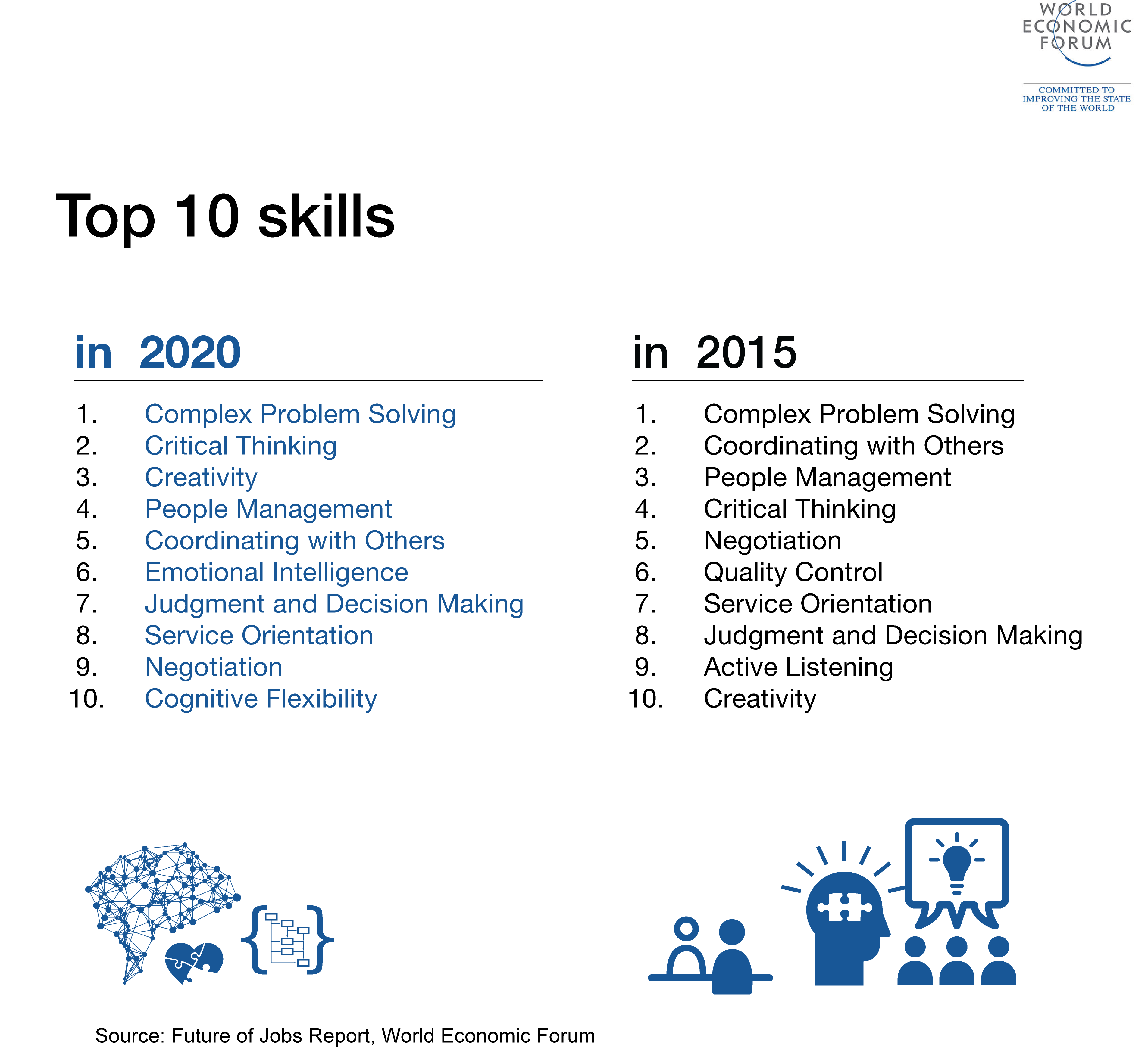Modern Africa: Competencies that are required for this era and the implementation of the 4IR.
Considering the vast advancements in technology and the times we live in, skills needed to compete in the workplace before the introduction of the 4IR are somewhat becoming obsolete today. Being ready for the future of work is one of the most important strategic steps to combat the Fourth Industrial Revolution's revolutionary effects. According to the World Economic Forum's Future of Jobs Report, more than one-third of the skills considered to be important for today's workforce will have altered within a short period (WEF, 2018). In this post, it is imperative that we highlight some of the skills that are in shortage in South Africa and mention the skills that are required for the 4IR according to the World Economic Forum.
This image gives us a clear understanding of how far we have come with industrial revolutions. It shows which skills were needed in each revolution. But now since we are in the fourth industrial revolution, digitalization has taken place. There is more demand for people who can utilize and program devices. The two basic kinds of skills that will be most valued in future digital workplaces are technical and soft skills. The first are those that demand advanced digital knowledge or IT-related abilities to directly manage and operate technology. Future jobs in South Africa will be found in social media management, digital performance marketing, data analysis, robotics, user experience, virtual reality, artificial intelligence, blockchain, and many more fields among those that did not exist a few years ago (Insaaf, 2022). According to the WEF (2016), there are ten skills that are ten skills needed to thrive in the Fourth Industrial Revolution.
This image gives us a clear understanding of how far we have come with industrial revolutions. It shows which skills were needed in each revolution. But now since we are in the fourth industrial revolution, digitalization has taken place. There is more demand for people who can utilize and program devices. The two basic kinds of skills that will be most valued in future digital workplaces are technical and soft skills. The first are those that demand advanced digital knowledge or IT-related abilities to directly manage and operate technology. Future jobs in South Africa will be found in social media management, digital performance marketing, data analysis, robotics, user experience, virtual reality, artificial intelligence, blockchain, and many more fields among those that did not exist a few years ago (Insaaf, 2022). According to the WEF (2016), there are ten skills that are ten skills needed to thrive in the Fourth Industrial Revolution.
To adapt to the changes brought about by the 4IR it is crucial to find a framework that will enable you to do so. Oosthuizen proposes a framework consisting of 10 types of intelligence needed for the 4IR and subsequent leadership development.
this figure was taken from a conference paper by Oosthuizen (2017)click here to read the full text




Comments
Post a Comment